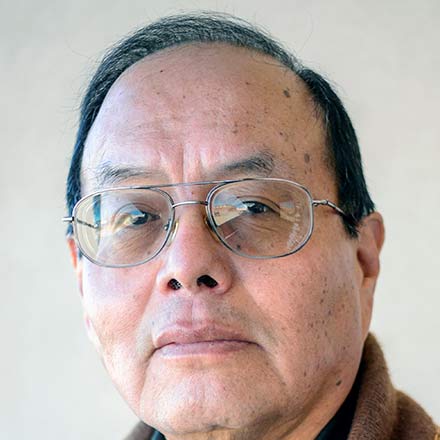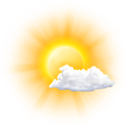
Despite strokes, camaraderie rules the day
In 72 hours beginning on January 11, I fell three times. The first was while walking to the post office in Gallup. My left leg gave way and I fell onto some rocks. The next was walking beside a highway when I rolled onto the road.

Duane A. Beyal
Unable to lift my leg, I could only watch as a truck and other traffic zoomed towards me. Then the lead truck stopped, blocking the other vehicles.
The driver got out, walked over to me and asked if I was all right. I said, “I can’t move.” He helped me stand and gave me a ride up the hill to my apartment near the hospital.
His help was the first of many helping hands I would see over the coming week.
I had a dental appointment scheduled at the hospital the first thing on Monday, Jan. 13. I decided to postpone it and get myself checked because of my falls.
I had felt numbness in my left leg, sometimes my left hand, about six or seven times over the previous week.
I got ready at my apartment, placed my cup of coffee on the counter, then – boom! – I fell again, square on my left gluteous maximus. It was so loud and jarring that I must have rattled the dishes in the other apartments.
I limped up the hill to Gallup Indian Medical Center as my left butt began to swell. But my doctor was out. I searched for the correct place to be seen, ending up with the crowd of people waiting in Urgent Care.
Familiar with the long wait, I settled down as best I could. After an hour and a half, I decided to stretch my legs. I stood by a wall in the waiting room when – bang! – I fell again.
People crowded around me and a staffer showed up with a wheelchair. I was whisked past the crowd directly in to be seen by a doctor.
I don’t recommend falling in the waiting room to beat the crowd, but it worked.
I thought my falls had something to do with blood sugar. But the doctor tested that first, then his face changed and he said, “It’s normal. Very normal.”
Then he whisked me along the hallways in the wheelchair to the Emergency Room.
I was given an electrocardiogram, a CT scan, blood and urine tests and others as they tried to find out what was going on.
I lay there for the next 25 hours. I couldn’t leave. Not even to get a charger for my phone so I could let my boss and family know where I was.
An ER can be quiet or loud as a jail. Throughout the night, I heard drunks yelling, a man moaning from pain apparently from a head-on and a broken femur, a solemn group gathered around a loved one, and a screaming baby.
Doctors and nurses came and went. One nurse said, “Call me Montana.” It was cold in the ER and after a while I said, “Montana!” She came in through the curtains. I said, “It’s cold,” and she said, “You want a blanket?”
When the blanket arrived, it had been warmed up. That was the best feeling all night – a warm blanket. Thank you, Montana.
Indeed, all of the medical staff I met were professional and capable. They moved me quickly from the ER to the testing rooms, then loaded me onto an ambulance for a quick ride to the airport. Then a flight crew loaded me onto a plane and we were soon rising above Gallup into a clear sky where I could see Dibé Nitsaa and Sisnajinii to the north.
My overnight stay in the ER was because they were waiting for a vacant bed in Albuquerque. Finally, a doctor at GMIC’s ER said the tests did not show much but to be sure they wanted to send me to Albuquerque for more tests, especially an MRI (magnetic resonance imaging).
At Lovelace Medical Center, like in the ER, I was hooked up to at least three wires and kept on a 24-hour watch.
I spent Tuesday afternoon to Friday morning in the neurology ward on the 9th floor.
The highly vaunted MRI was a loud machine that took half an hour to do its work. I was told to lie still. Being a Native, I was familiar with waiting so this was no problem.
Throughout the days, I became familiar with pricks to my finger to test my blood sugar level. They ranged from 189 to 134 (“just where we want it,” a nurse said).
Finally on Wednesday morning, two doctors came into my room. They said the MRI showed that several small strokes had happened in the right side of my brain.
A stroke is when a blood clot gets stuck in your blood vessels, interrupting the flow of blood to parts of your brain.
Whenever I had fallen or felt numb, this was a stroke happening, they told me.
“When you’re a victim of a stroke, such as yourself …” one explained – I thought to myself, he called me a stroke victim!
After they left, the efficient staff served me lunch – low carbs, no sugar and lots of fruit and vegetables.
My son picked me up on Friday morning and drove me back to Gallup. I spent the next two weeks off from work, watching for any symptoms. The doctors were confident in the medication they gave me. When I asked if any episodes might happen again and can I go to work and drive, they hemmed and hawed but finally said, “Just take care.”
The future is uncertain. It always is, but I have been given a chance to see and try to understand.
A big part of this chance is thanks to the medical staff and crews that took care of me. Thank you, Montana, and all the staff in GIMC’s ER.
Thank you to the crew of Flight 30422: paramedic Luke Forslund and nurse Laura Shaffer. Forslund charged my phone during the flight – finally! – so I could send messages to my office and family.
And thank you to the pilots, Curt and Joe.
In the ambulance in Albuquerque, thank you Jonny from South Korea. At Lovelace, thank you Jimmy from India. Thank you, Edna from the Phillipines. Thank you Kim at the ultrasound (two times) and Courtney with the electrocardiogram.
And of course, thanks Charlie, who sings now and then at Lovelace for children and other patients, and sang a quick diddy while he wheeled me to the MRI.
I had asked all the medical staff where they are from. They all had a story, such as the young doctor who said he and his wife work at GIMC for a week then switch to the Navajo-Hopi hospital.
There were many others I did not get names of – the guy in the CT scan, the two guys at the MRI. But thank you for taking care of me.
Throughout the week, I was surrounded by professionals. As they did their jobs they talked and laughed. Camaraderie ruled the day.
And never once did I forget our treaty signers and our ancestors who helped form our rainbow of sovereignty. So that I, a member of the Navajo Nation, could receive the best care and be given expensive tests at no cost to me.
Finally, a last note. I was really dumb to ignore the signals my body was sending me. If you have any symptoms, don’t ignore them – get checked.
For whatever reason, I was given another chance. I am back at work now as your editor. And there is work to do.







 Highway 264,
Highway 264, I-40, WB @ Winslow
I-40, WB @ Winslow